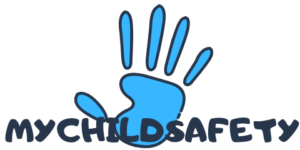
Babysitting is often one of the first jobs teens or preteens will have.
Depending on the individual, and the ages and needs of the child(ren) to be cared for, kids may be ready to begin babysitting from about the age of eleven.
Whether it is caring for younger siblings, neighborhood children, friends or acquaintances it is important for them to be prepared before taking on such a big responsibility.
Local Babysitting Clinics
Many local hospitals, police departments, and Red Cross chapters offer babysitting clinics to prepare teens to become responsible babysitters
these classes focus on safety as well as how to choose age appropriate games and activities for the children you are caring for.
Even if your teen does not take a babysitting course it is a good idea to take a course in CPR prior to caring for children. Contact your local hospital or Red Cross chapter to find out how to sign up.
How Parent’s can Prepare Young Teens
It is also important for parents to help prepare their teens and preteens to become dependable, trustworthy, and cautious caregivers.
The following are some helpful babysitting tips for teens you can share with your future babysitters:
- Only take jobs you know you can handle.
- Tell your parents where you will be, how they can contact you, and what time you will be home.
- Remind them they can always call you if they have questions or concerns.
- Call 911 in case of emergency, be ready with the family’s name and address.
- Ask the parents about any food allergies, rules for snacks and meals, bedtime, playing outside, etc.
- Make sure all doors and windows are locked.
- Never unlock the door to strangers.
- Do not give out information over the phone. Tell callers, “___ can not come to the phone right now, may I take a message?”
- Make sure you know where the children are and what they are doing at all times. Always stay with young children when babysitting.
- Never leave a child alone in a bathtub, wading pool, etc. It only takes a few seconds for a child to drown.
Choosing the Right Babysitter
Parents of the children who are going to be cared for by a babysitter also have a duty to help prepare the babysitter.
As a parent, your child’s safety and well being is always your first priority and as such, you need to be careful about who you entrust with their care.
Be honest in evaluating your child’s needs versus a babysitter’s experience.
An eleven year old may not really be ready to take care of an infant, although he/she might make a perfect afternoon companion for your five year old while you complete your grocery shopping.
A thirteen year old with young siblings might be more attentive to your two toddlers than the sixteen year old more interested in chatting on her cell phone.
Does your child have special needs? How many children are you expecting the babysitter to care for? Should you hire two sitters?
Ultimately, you know your child and his/her needs. Take the time to know your sitter as well and make sure your child’s needs match up with the sitter’s experience and skill level.
Tips for Parent’s Seeking Babysitters
The following are some helpful babysitting tips from the perspective of the parents of the children to be cared for:
- If using a new babysitter for the first time it is a good idea to invite them over for a short period of time when you are present to interact with your child. Pay them the normal hourly rate and explain that it is a “get-to-know-you” session so that your child will be more at ease the first time he/she is left alone with the sitter. If this is not possible, ask the sitter to arrive thirty minutes early the first time they are to watch your child so that there is time to get acquainted before you leave.
- Go through the house with the sitter checking doors, windows (make sure they are locked), fire extinguishers, smoke, and smoke alarms. Advise them of the family’s meeting place in case of fire.
- Post a list of emergency numbers including the number of a close-by trusted neighbor or relative, poison control, doctor’s name and phone number. Make sure to include your cell phone number and/or the phone number for where you will be staying. Include your home address on the list – it will be needed if the sitter has to call emergency personnel.
- Leave written instructions for any medications that are to be given to children.
- Tell the sitter your expectations regarding inviting guests over in your absence.
- Explain your rules regarding meals, snacks, bedtimes, television, video games, playing outside, swimming (if you have a pool), etc. He/she will not know unless you tell him/her.
- Do not expect the babysitter to care for extra children without discussing beforehand. It is not fair to surprise him/her with your friend’s children at the last minute – not to mention unsafe if he/she can not adequately supervise that many children on his/her own.
- Make arrangements to escort your babysitter home at night – do not allow him/her to go home alone.
- Call home at least once while you are away to check on things.
- Always call if you are going to be late.
For even more information as well as a downloadable emergency contact form to fill out, be sure to check out this additional babysitting safety information.
In a related topic, your child may not be ready to begin babysitting or caring for others, but you may be wondering if he/she is ready to begin staying home alone. If so, see our tips for“Home Alone”.
